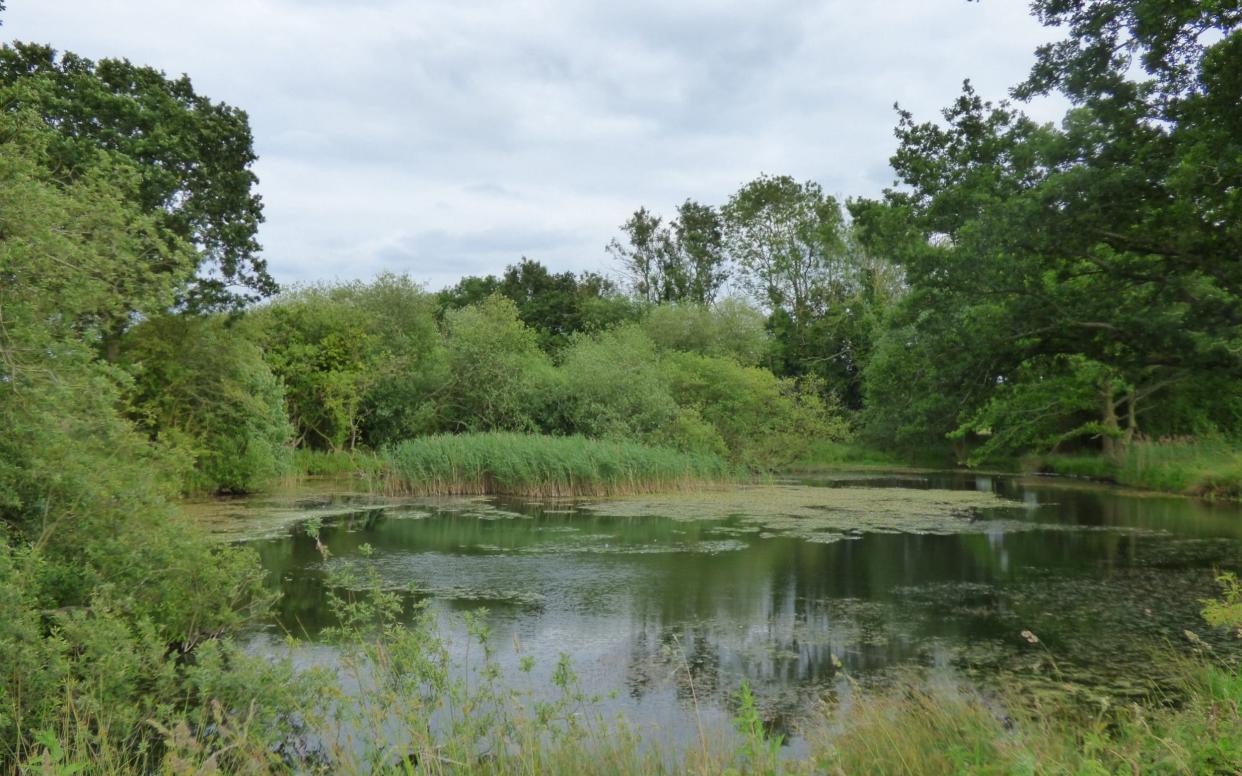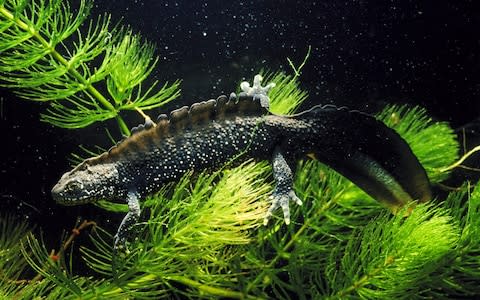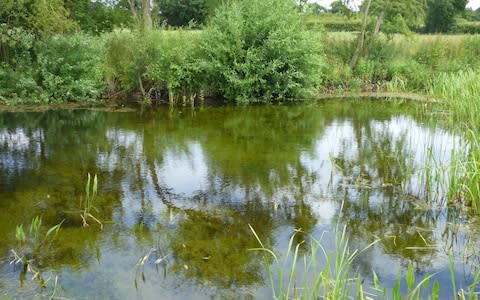Seeds dormant for hundreds of years brought back to life with pond revival

Farmland ponds were once a mainstay of the industrial revolution, used for cooling down agricultural machinery at harvest time, watering crops and even providing fish for locals.
But campaigns like ‘Dig for Victory’ in the Second World War led to thousands being filled-in, in the push to produce more food and intensify farming.
Now conservationists are joining forces with University College London (UCL) to restore at least 50 ponds in the hope of attracting back rare wildlife such as the great crested newt, and encouraging insects like bees, hoverflies, dragonflies and mayflies, which provide food for swallows and linnets.
The team is hopeful that seeds which have been buried in the mud for hundreds of years will start to germinate once they experience the warmth and light of their newly restored habitat, bringing back plants not seen since the Victorian era or earlier.

Helen Greaves of UCL’s Geography department said: “Ponds are a lifeline for Britain’s wildlife providing food and habitat throughout the year, but they are in decline. This is a national crisis.
“We are calling on farmers and the public to help to bring Britain’s ponds back to life and reverse this worrying decline.”
Farmland ponds are defined as a body of shallow, permanent or temporary still freshwater less than 260ft (80 m) in diameter.
Many have their origins as marl or clay pits which provided lime-rich clay to improve soils for crops. In some cases they were dug as livestock watering ponds and can be centuries old.

Yet even the ones that survived massive land requisitioning after the Victorian era, have become overgrown with trees, scrub and invasive species, making them dark and inhospitable to most species.
Since 2014, UCL and the Norfolk Ponds the team has restored 60 ponds in Norfolk, and now aims to bring back 50 more across the county and further afield in Lancashire and Gloucestershire.
To restore a pond, the team firstly carries out a survey to make sure that there are no rare species that could be at risk. Restoration of a particularly overgrown pond usually involves major tree and scrub removal from the south and west sides of a pond to let the light in, followed by mud removal by digger.
Once cleared, the pond is left to essentially restore itself. Seeds from plants which got trapped in the mud centuries earlier, spring to life once sunlight can once again reach the water, and animals start to return for the clean water and food.

UCL’s Pond Restoration Research Grouprecently showed that pond restoration brings back huge numbers of water plants, invertebrates, amphibians and fishes in just one year.
At a pond restored by the Norfolk Ponds Project in February 2015, UCL recently recorded the very rare Holly-leaved Naiad, only the second time it has ever been recorded outside of its Norfolk Broads. This plant was probably brought to the site by birds.
Dr Carl Sayer, of UCL’s Geography department, said: “It is incredible how quickly the ponds we restore come back to life.
“During our restorations we get dragonflies coming to visit for the first time in many decades and by the spring amphibians arrive, often including the charismatic Great Crested Newt.”
The 50 restored ponds will be monitored by the UCL researchers for water quality and biodiversity.
And they are looking for volunteers who can help chainsaw and drag wood out of the ponds and farmers who would consider restoring water on their own land.
Dubbed, The Big50 initiative UCL will be restoring ponds throughout September and October alongside the Norfolk Ponds Project, the Upper Wensum Farm Cluster Group, Gloucestershire Farming & Wildlife Advisory and The Wildfowl & Wetlands Trust.

 Yahoo News
Yahoo News 
